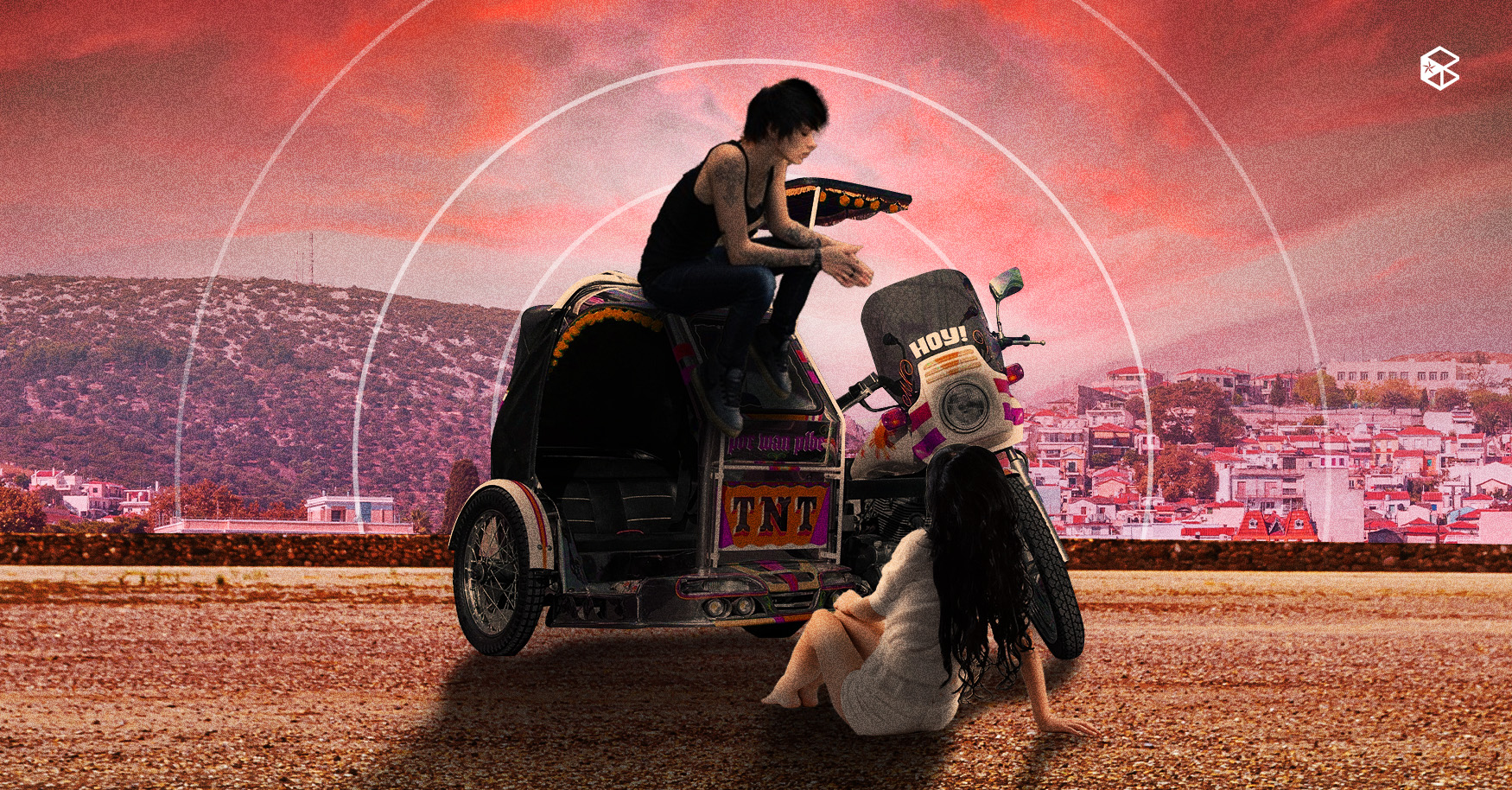In Maraña subdivision, Jude is a tindera for one of four sari-sari stores when her mother calls. When her father calls, she is a tricycle driver.
“Judith!” It is only her parents who call her that name, being the ones who graced her with it. When they found out she would only let people around Maraña call her by the severed version of her birth name, she defended herself by saying Jude is biblical all the same. And with that clean army cut she sported and her strong step that kicked the tricycle engine into life, everyone did not dare call this young woman anything but.
But everyone knew, teetering between buried images of what it is to be a Jude and what it is to be a Judith and what it is to be something between or outside altogether. And Jude knew everyone knew, whipping her bimpo at the next neighbor that cracked a joke about what brand of sanitary pad she wore and called her “t-bird” over a round of gin and laughter.
She would often be at the cusp of questioning why anyone thought themselves rightful to say those things about her before dismissing it for humor and tradition’s sake. Because what does Jude of Maraña know about getting far and being someone else, when all she knows is a 10-minute ride radius and the feeling of coins being dropped in her palm?
What Jude loved was silence, the serenity of the subdivision. It was a silence that was alive and flowing, an explanation beyond words and questions where Jude could feel most close to herself, and she found herself there more when her mother finally found a second help at the sari-sari store. She would lie down on the duyan secured on the patio’s posts, on the outer side of the wooden counter, and Ada would be the tindera opposite her.
Ada taught Mother Tongue and GMRC part-time for first graders at the subdivision’s elementary school. She was in and out and always esoteric in her countenance. She averts from eye contact but never from rich conversation, and because of her introspective nature that causes her to rethink everything twice and more, she struggles to turn down spontaneity for fear of being found too puzzling or indecisive.
“Madunggan na nimo? (Can you hear that?)” Jude asks from the duyan, her foot on the floor to stop her swaying. The wood creaks, wind blows, and a bird calls.
“O. Ang bilad-bilad na. (Yes. That’s the bilad-bilad.)” Ada replies almost curtly.
“Bilad-bilad?”
“O. Murag ikaw karon. Mao ata tawag sa ila, tungod sa ilang ikog. (Yes. Just like you right now. I think they are called that because of their fan tails.)”
“Murag ako?–taysa, ka-bright na ba nimo. (Like me?–wait, how are you are so smart?)”
“Hilig lang gyud ko’g langgam. (I just really adore birds.)”
They listen to the pied fantail and its high-pitched calls for the sun, imagining it opens its feathers to the sky without fear.
“Jude,” the wind brought Ada’s voice to Jude, and the latter shyly sat up. “I’m leaving early again,” she said with overcast eyes, a few strands of hair in her face, which was already behind the store’s screen. Jude felt it–an inner pulsing, a knowledge that they were the same, that Ada needed layers to sift the potency of her soul, just like how she had to behave a certain way to explain her appearance.
Before Jude could ask, the sound of tires slowing down over gravel answered. A Mirage with its windows down–two women up front and three women cramped in the back, all giddy and brimming with energy and noise. “Adaaaa! Let’s goooo!” they chirped.
The last time the grovel road crackled under this overloaded car to fetch Ada, without a word, Jude had looked between them, watching as Ada took her bag and walked to the back seat, evidently uncomfortable to take up the little space left. The car had driven away, taking the women’s voices with them, and Jude had silence again, but that time, it had been stagnant and incomplete.
They would do this regularly at Ma’am Amy’s house. Five women—all teachers with advisory classes, gathering to get home service pedicures, manicures, facials, dinners, drinks. But it was really one thing they all flocked for—gossip. It kept them alive in the nest of Maraña—it was their chirping and feeling involved that kept them sane in what festered within, firing questions that subdued Ada under their maternal flame, to baptize her as a woman alike. But Ada didn’t want to be a chirper—she wanted to be a songbird.
As Ada grabbed her bag, Jude abruptly stood up. Ada looked at her, for the first time with curiosity, and Jude vowed she would do anything to be looked at that way one more time.
But she had always been bad at one thing–lying. If she was any good at it, she would have longer hair and a smaller body, and she wouldn’t dare drive a tricycle let alone hail passengers.
“Naunsa ka, ‘day? (What’s wrong with you, inday?)” Ma’am Amy inquired, poking her short neck out the window.
Jude, unable to scramble for an excuse, scrambled for her father’s tricycle instead, hoisting herself on and revving the engine. Jude looked at Ada, who had been slowly stepping toward the car, and nodded. In that window of time they locked eyes, Ada saw Jude for all her glory–her neat haircut, dewy skin, clean shirt that clung to the rolls of her torso, as if Jude had presented her fantail to Ada, showing her what it was like to be under the sun.
Ada scurried to the motorcycle’s back seat, barely holding on before Jude raced away, past the confused protests of the women in the Mirage, past the houses they grew up around, past Maraña itself.


